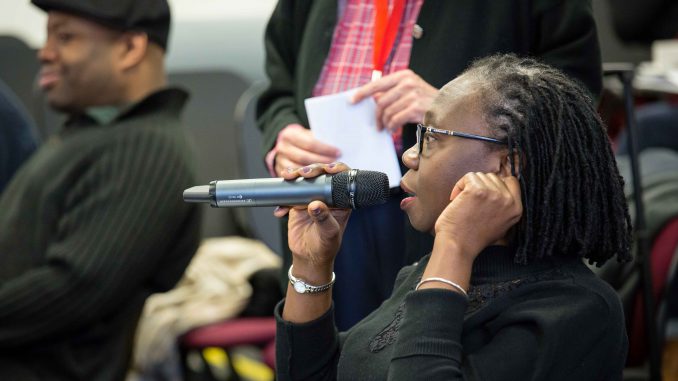
Savi Hensman, ARC South London’s patient and public involvement coordinator discusses the value of patients, service users, carers and the public being actively involved in research.
A new Applied Research Collaboration (ARC) is beginning its work in south London, part of a national network of ARCs. Funded by the National Institute of Health Research, the name makes it clear that working together is key, as well as applying new knowledge to benefit patients and service users.
Patient and public involvement (PPI) in research is now widely recognised as essential. This goes beyond participation, when people take part in a research study, and engagement, when information and knowledge about research is more widely shared. Actively involving service users, carers and communities in research projects or organisations means that they can influence what is researched or how.
Before the ARCs there were CLAHRCs (Collaborations for Leadership in Applied Health Research and Care), in which ideas and insights from patients and the public proved valuable. In south London, researchers have built strong connections with service users, carers and other local people which will continue and develop in the ARC. And, of course, some researchers have lived experience of the types of health issues they study, which helps to inform their research.
Yet it is still perhaps easier to focus on how important it is for institutions and sectors to collaborate rather than on diverse local people as vital partners. Such collaboration matters indeed – sometimes those arranging or providing healthcare, social care and prevention seem to be in parallel universes, quite apart from that of researchers!
However deeper attention to the experience and insights, capabilities and concerns of patients and the public can help bridge those gaps. This may involve working with service user, carer and community groups to make sure that a range of voices are heard and taking account of people’s lives as a whole. In south London and beyond, many people have multiple health issues and poverty, discrimination, pollution and violence are highly damaging, though mutual care and collective action make a valuable difference.
Increasing awareness and building relationships can take time and effort. The way research, treatment and care are funded, planned and overseen sometimes get in the way. But collaboration in the widest sense, which goes beyond the walls of universities, hospitals and civic buildings and brings in local people, can be deeply important in learning together and improving wellbeing.

Leave a Reply